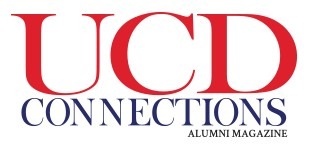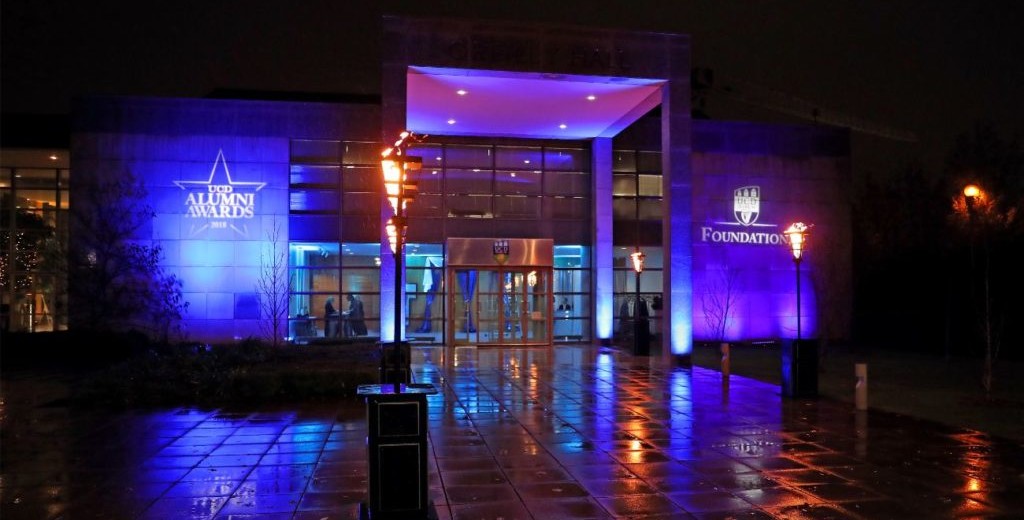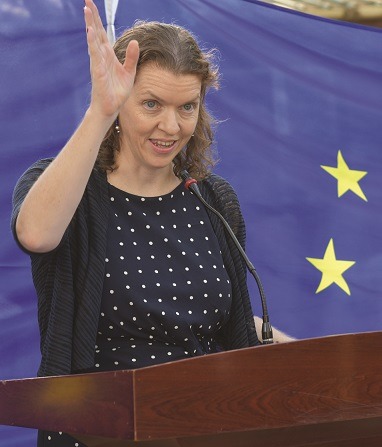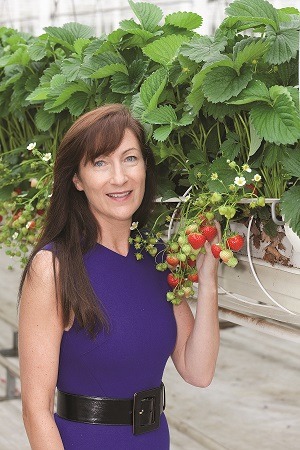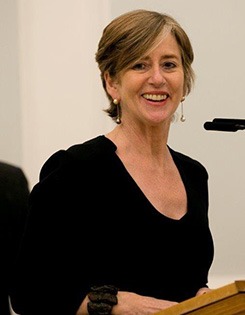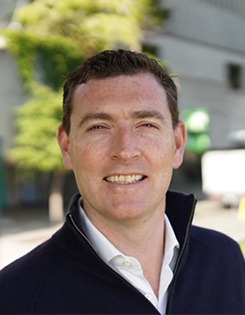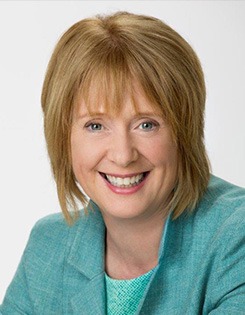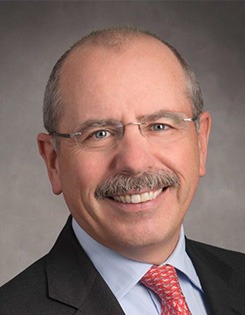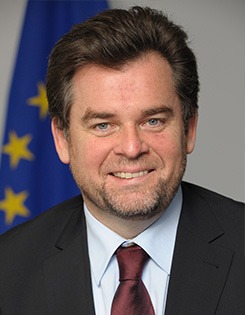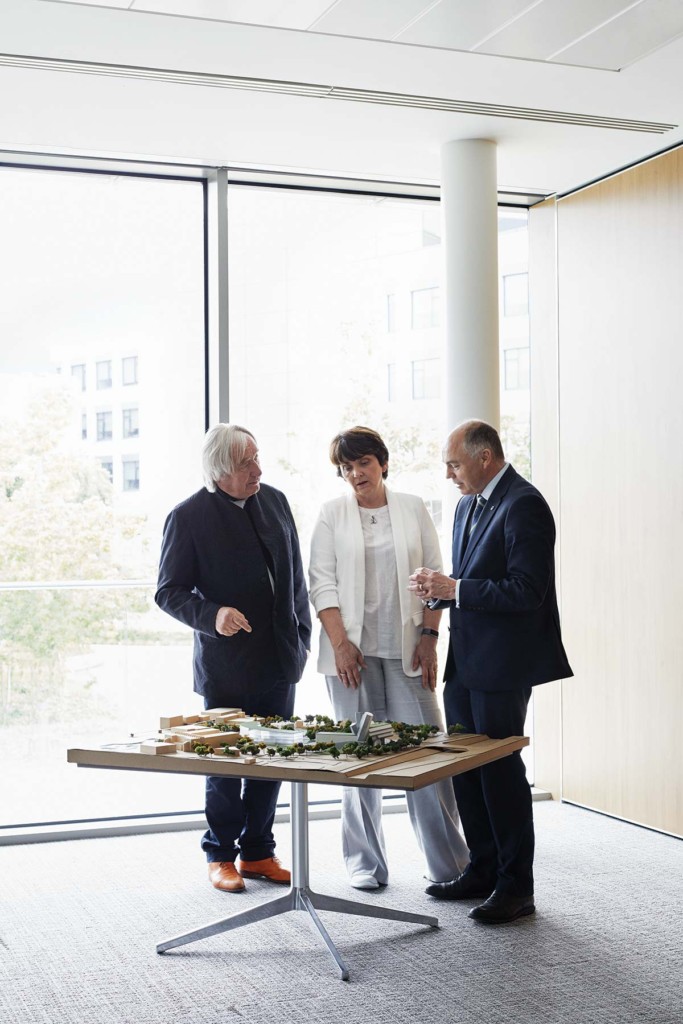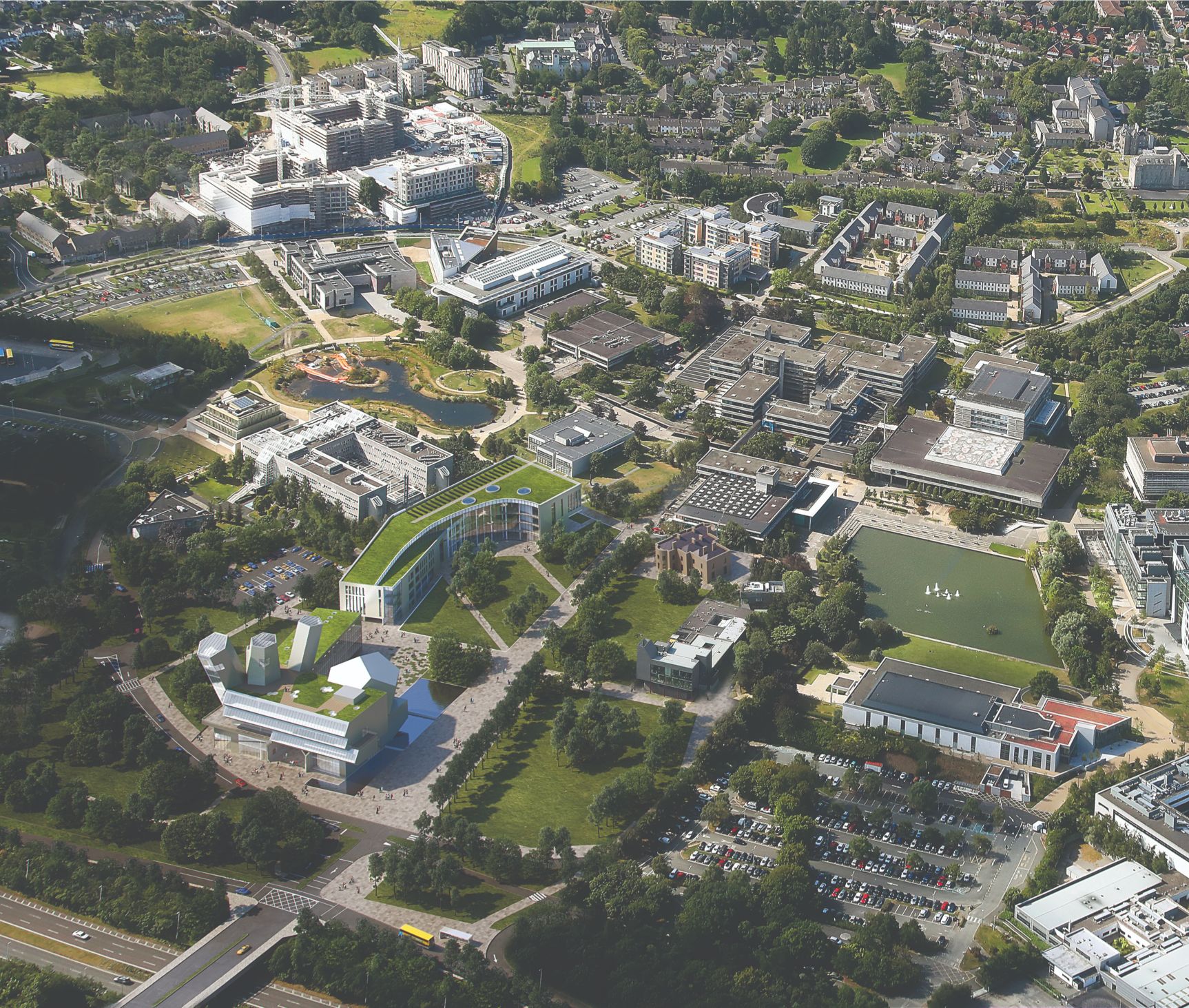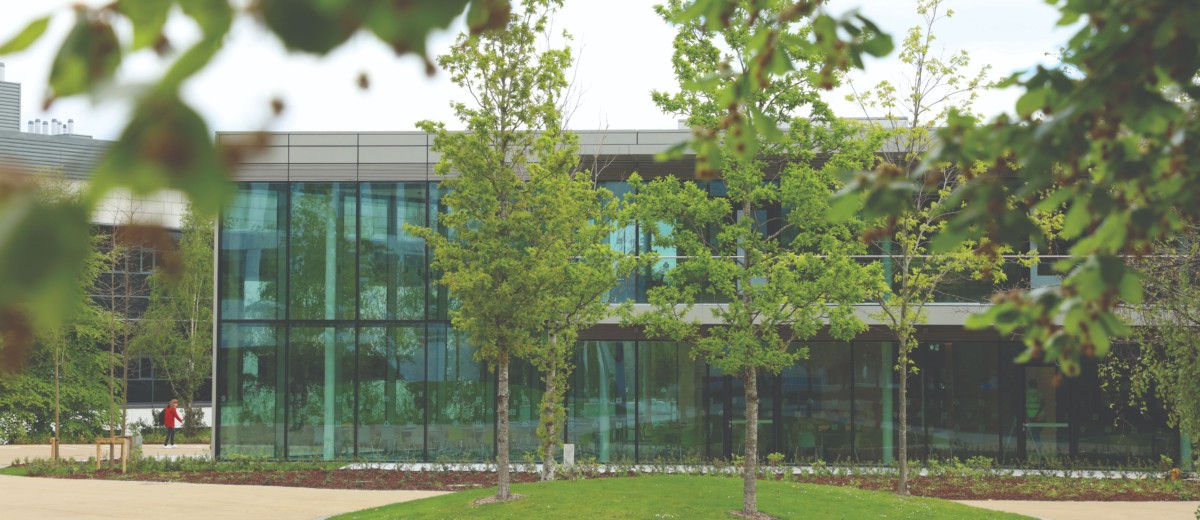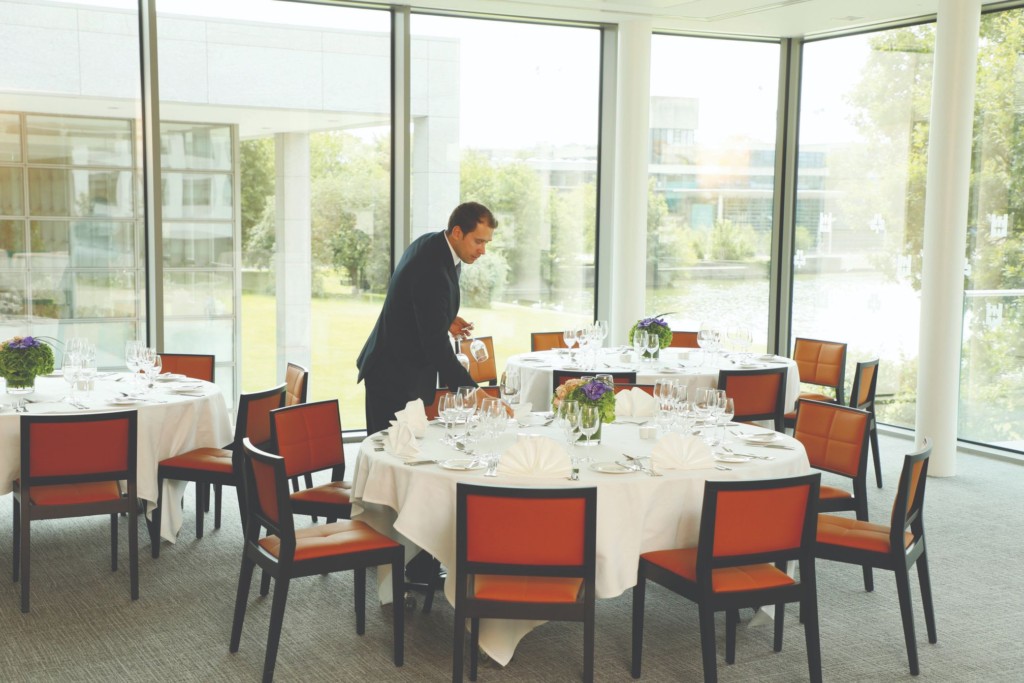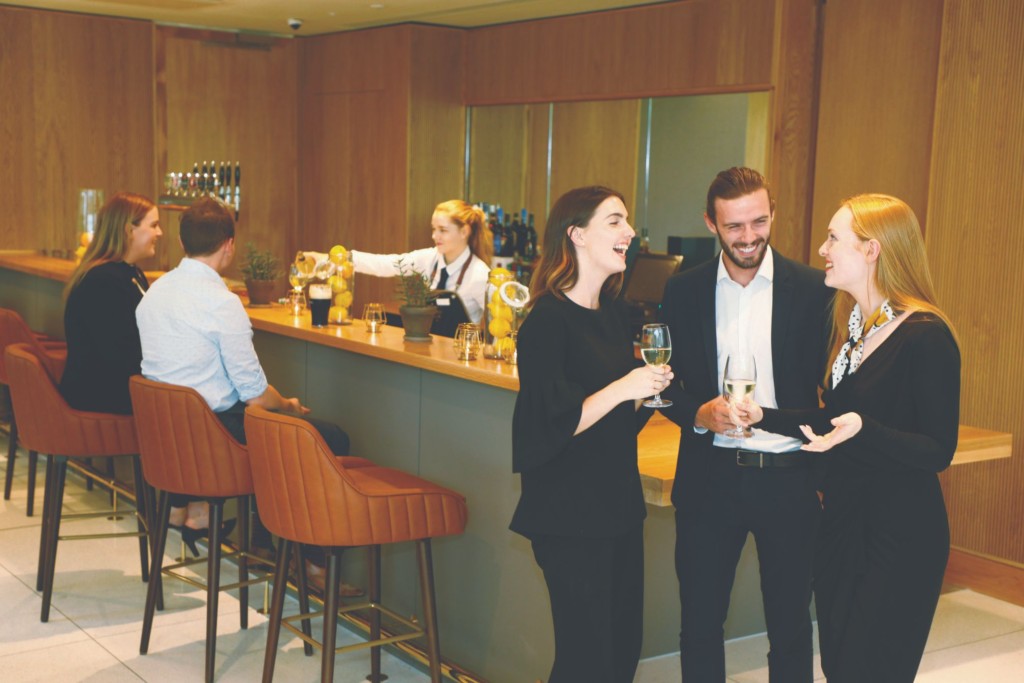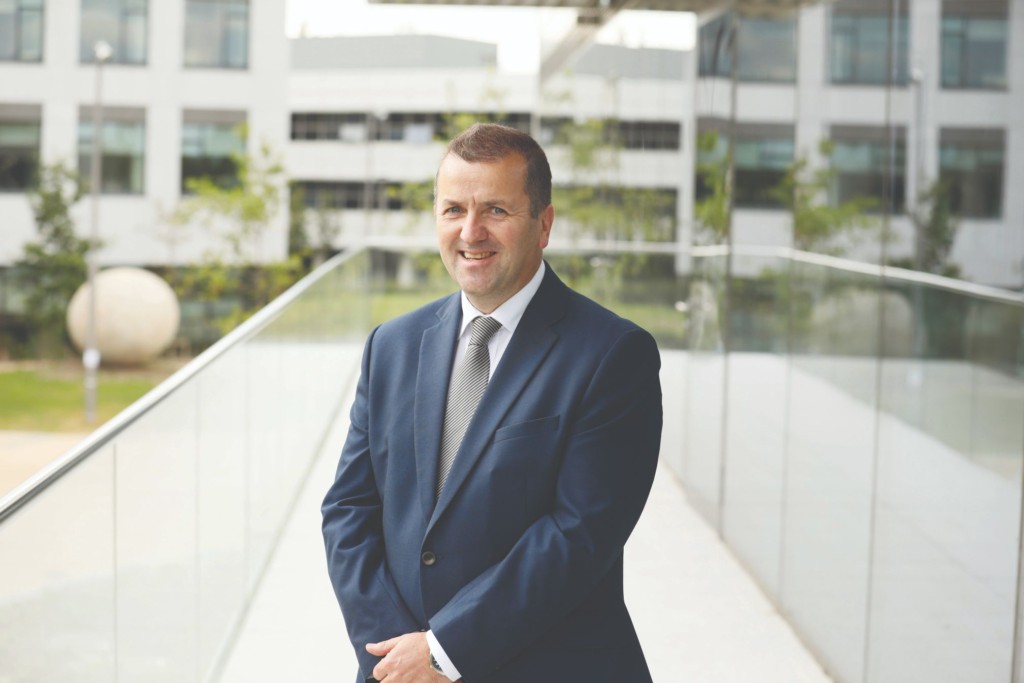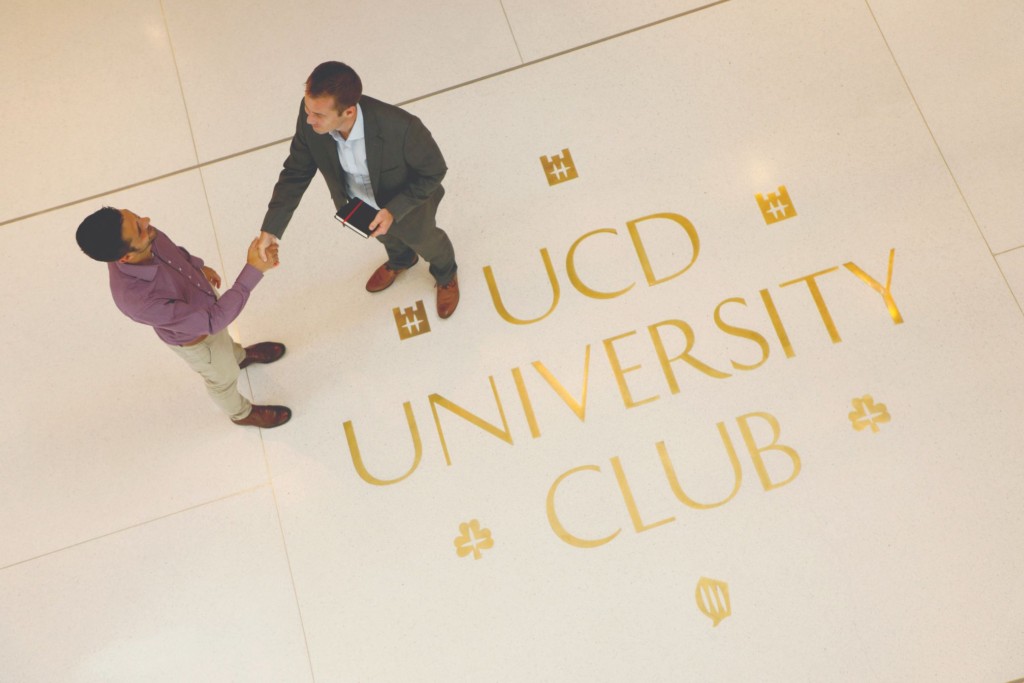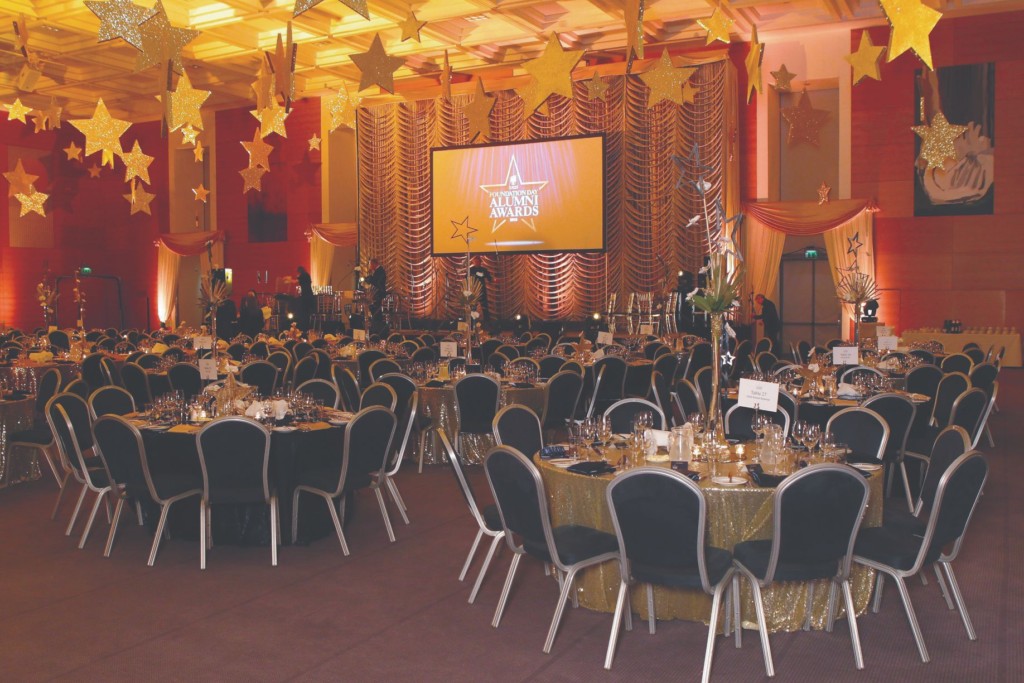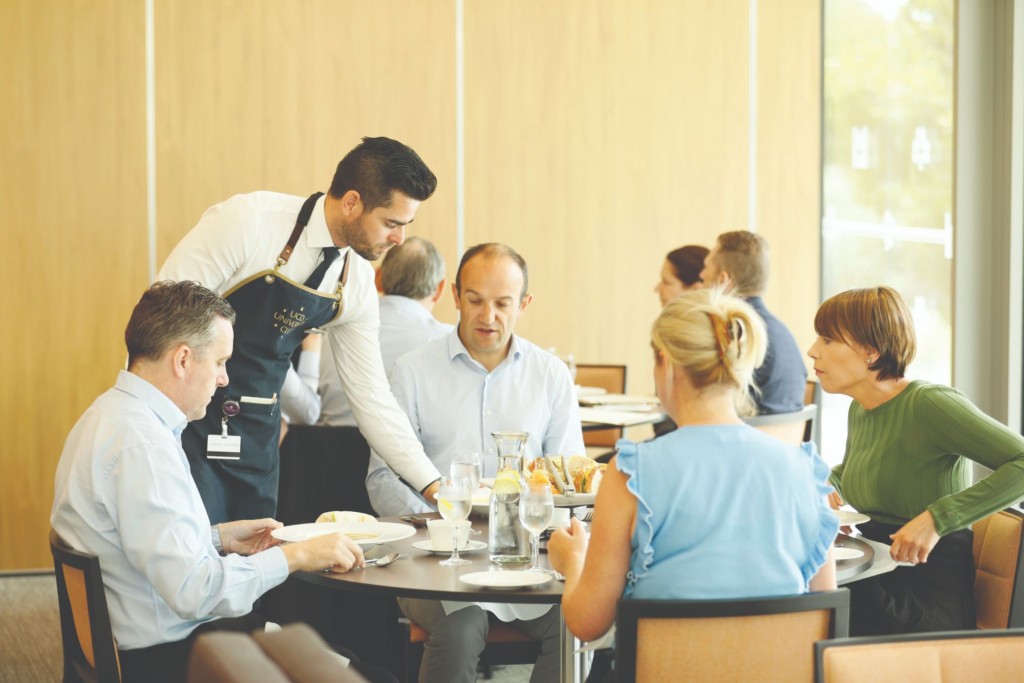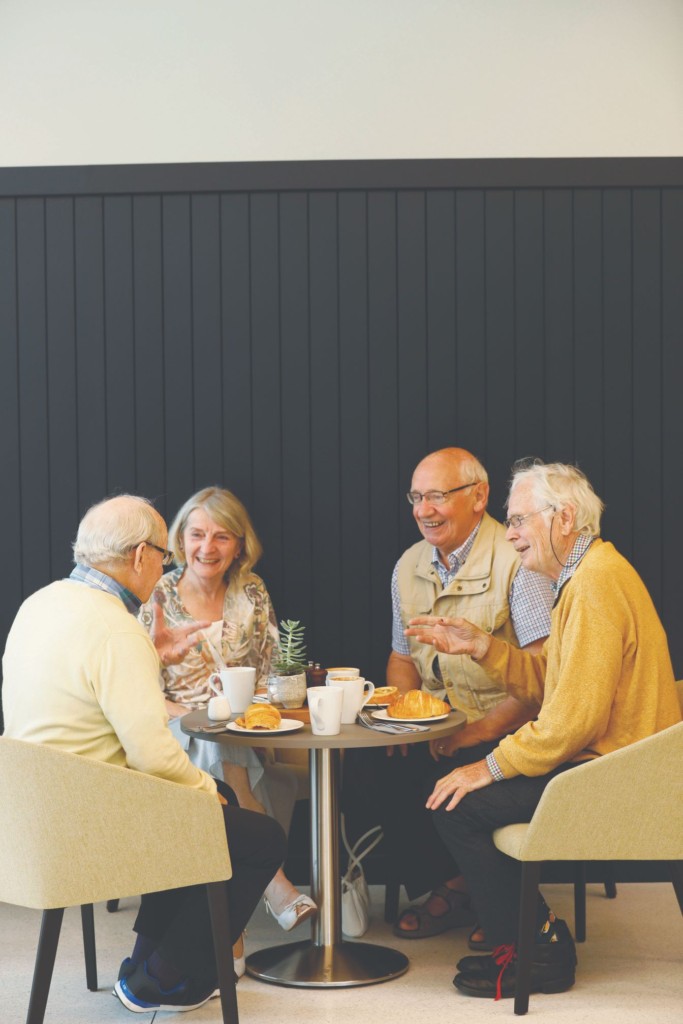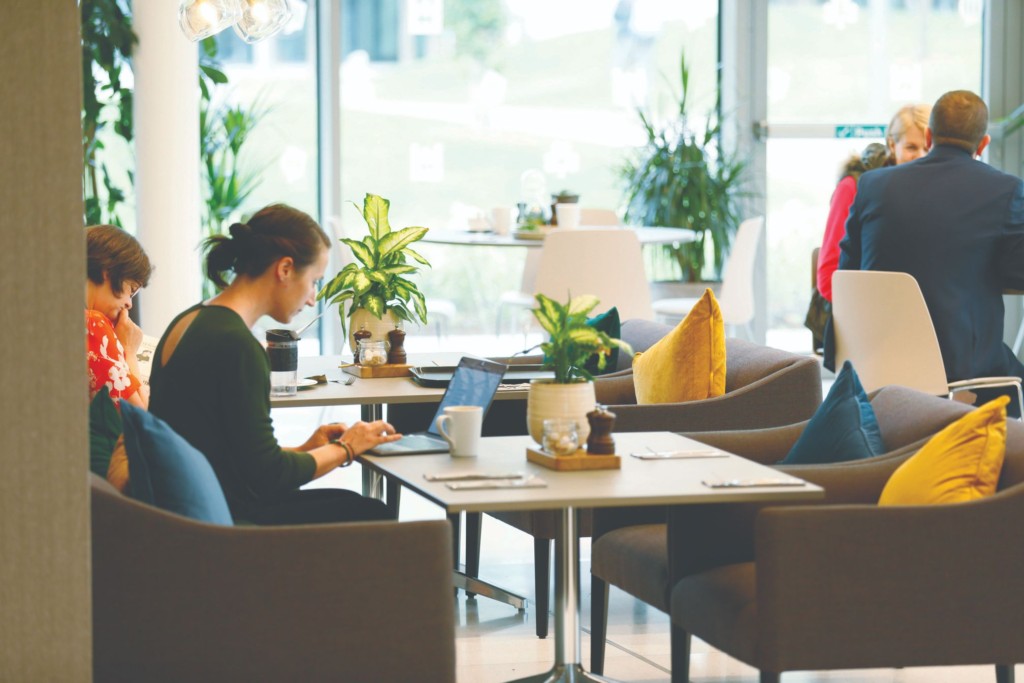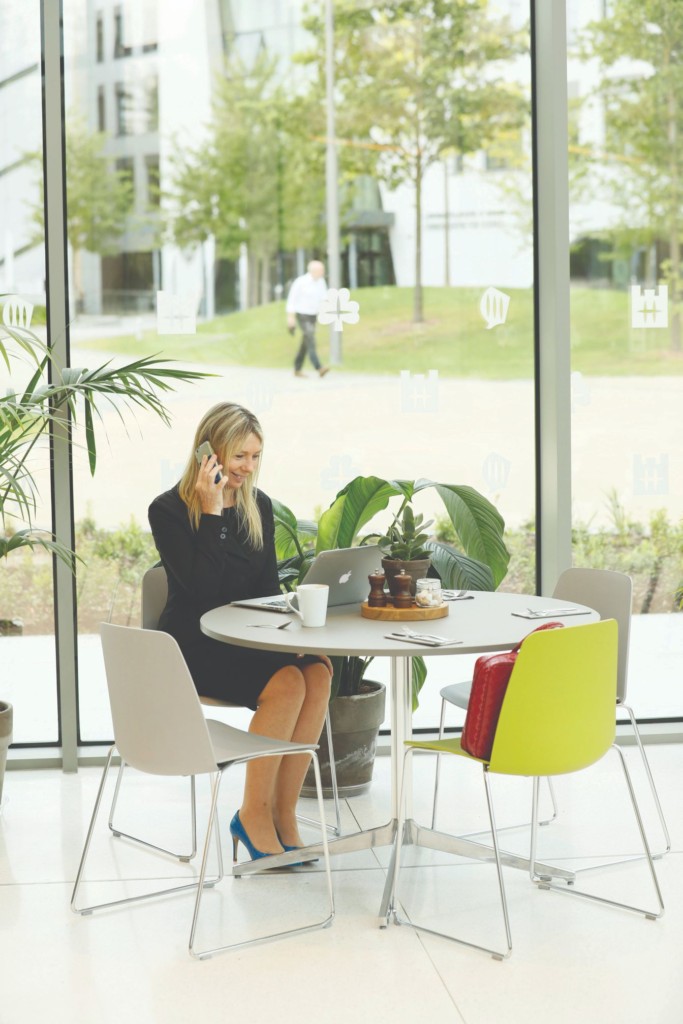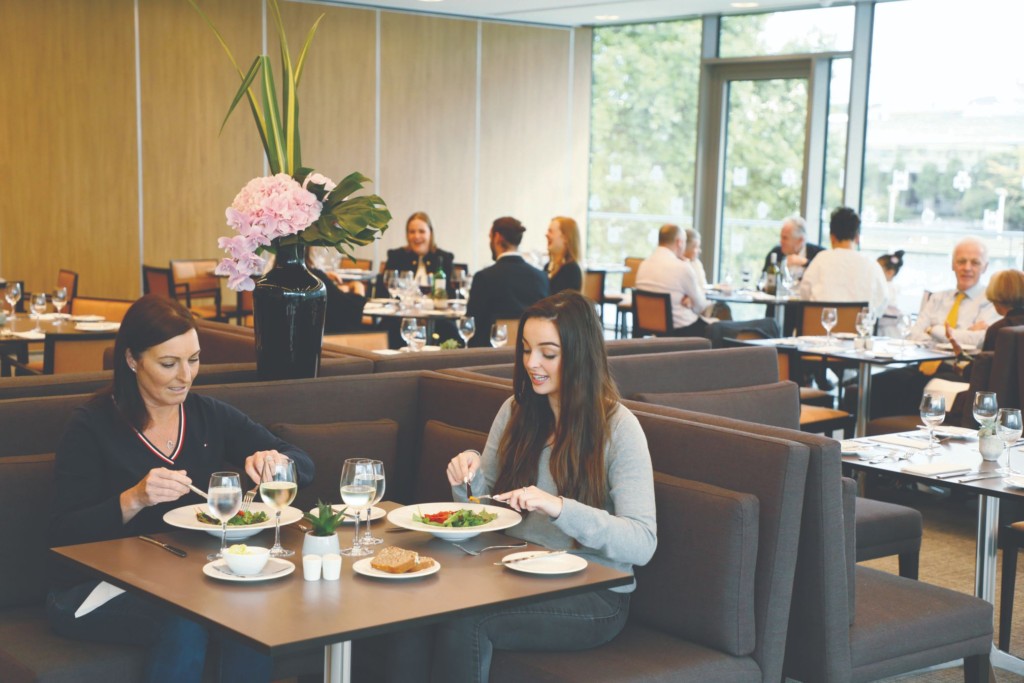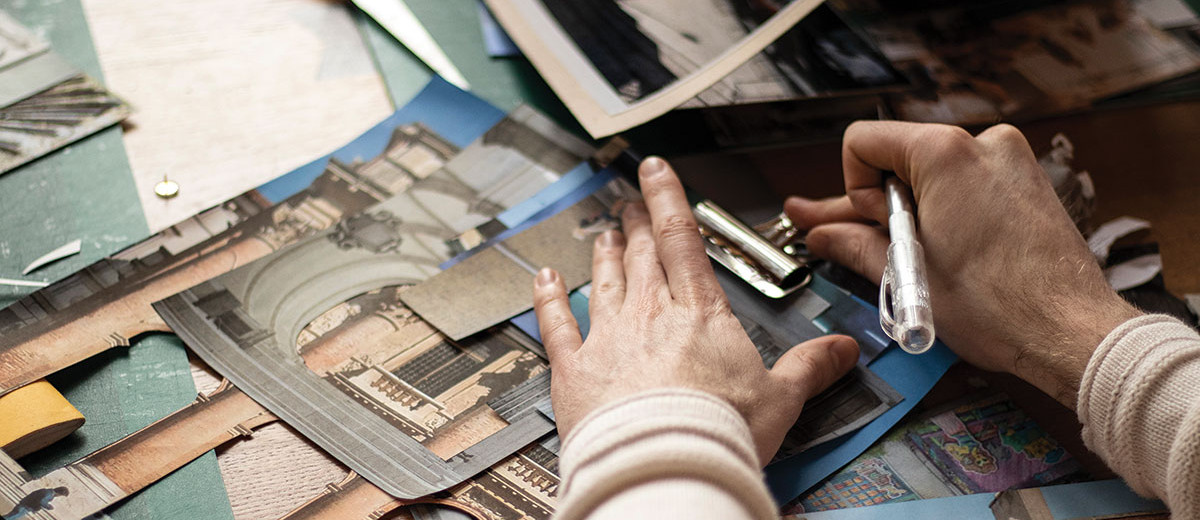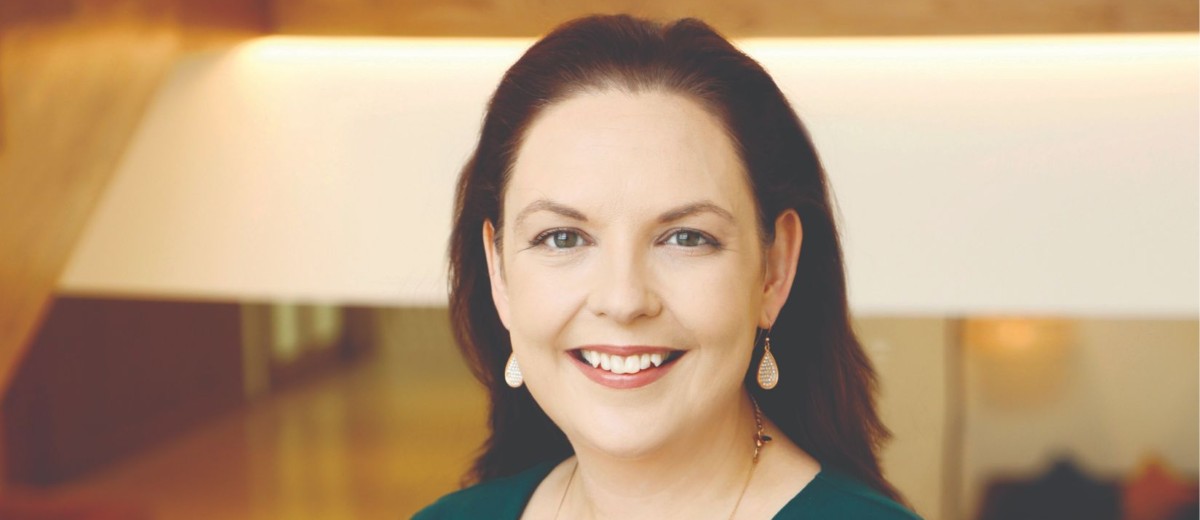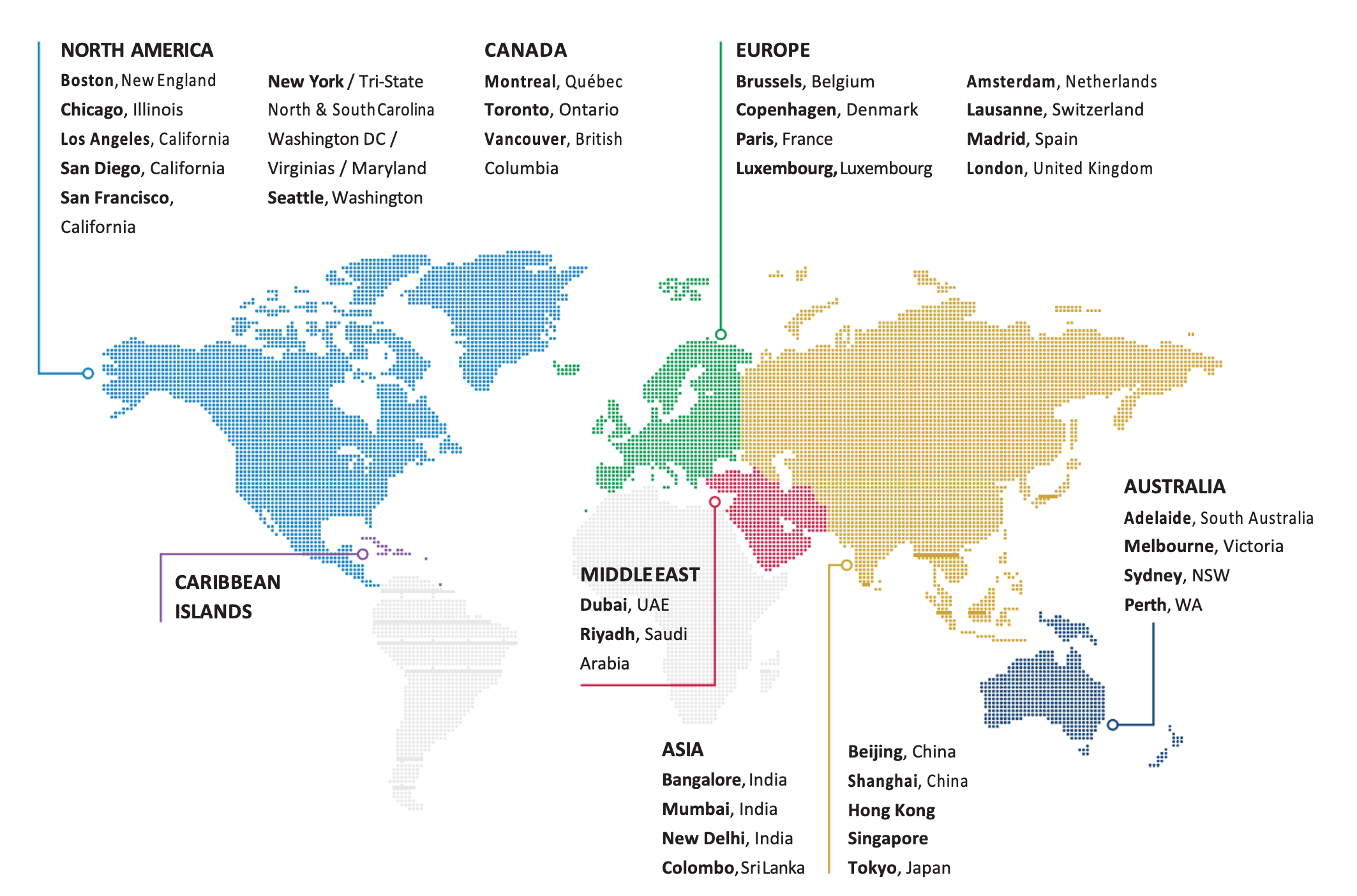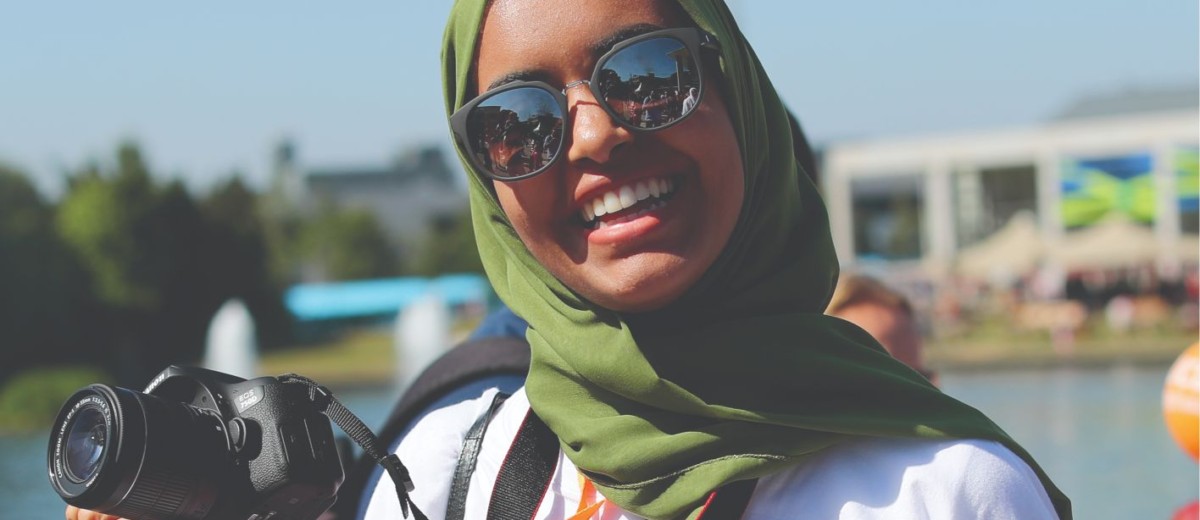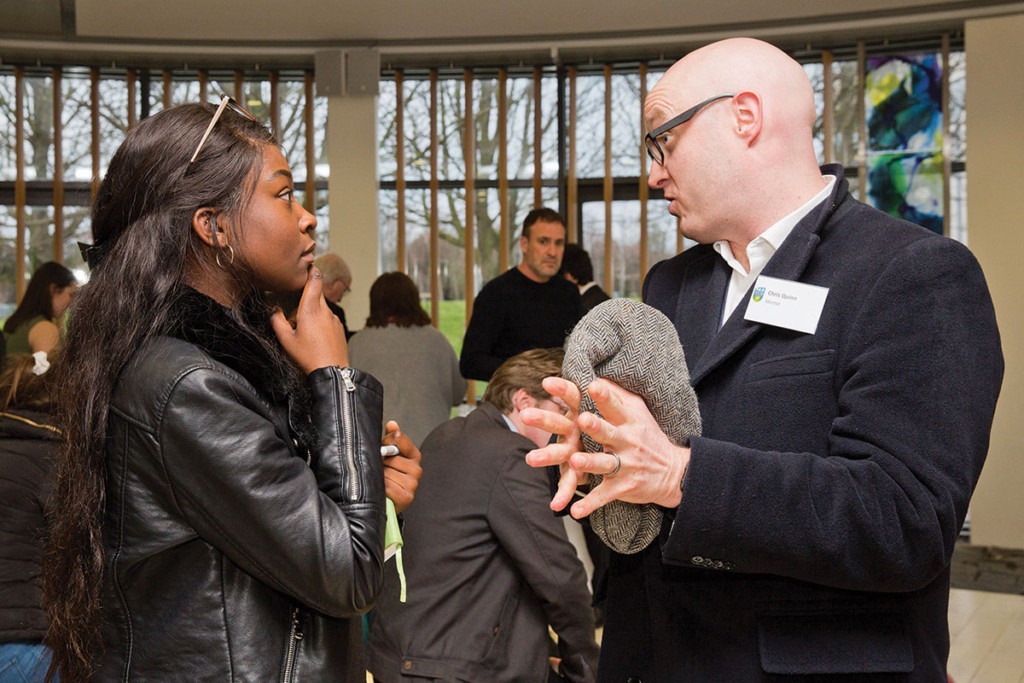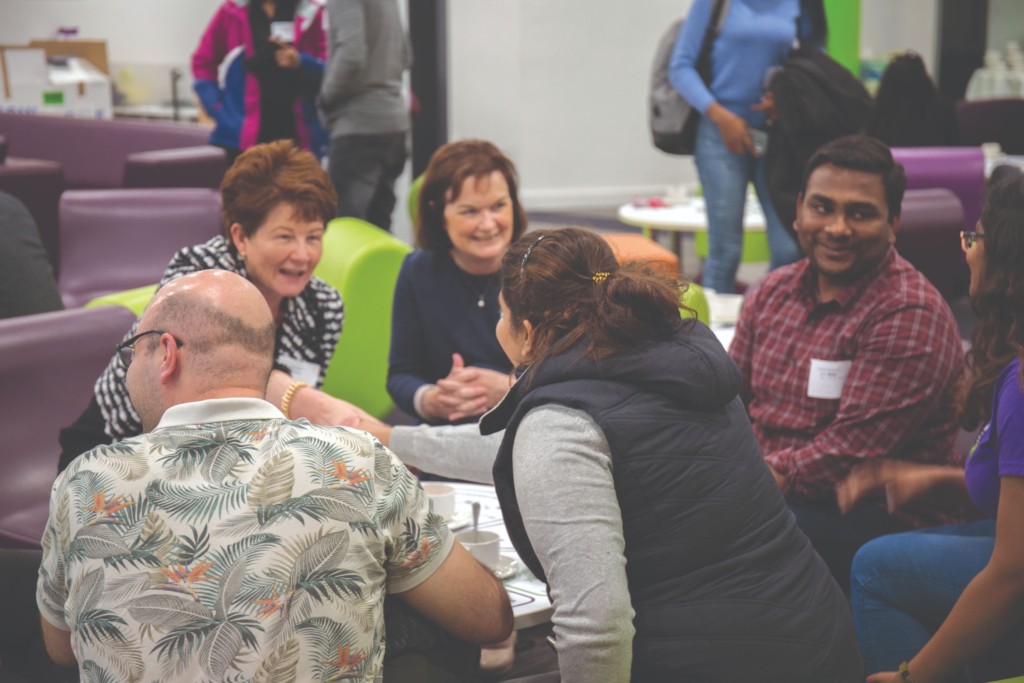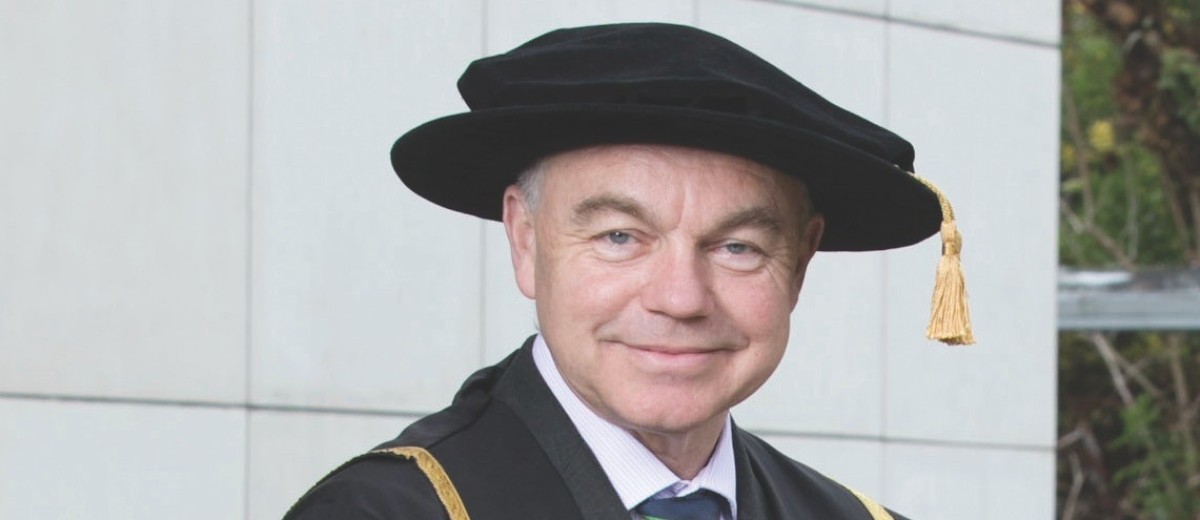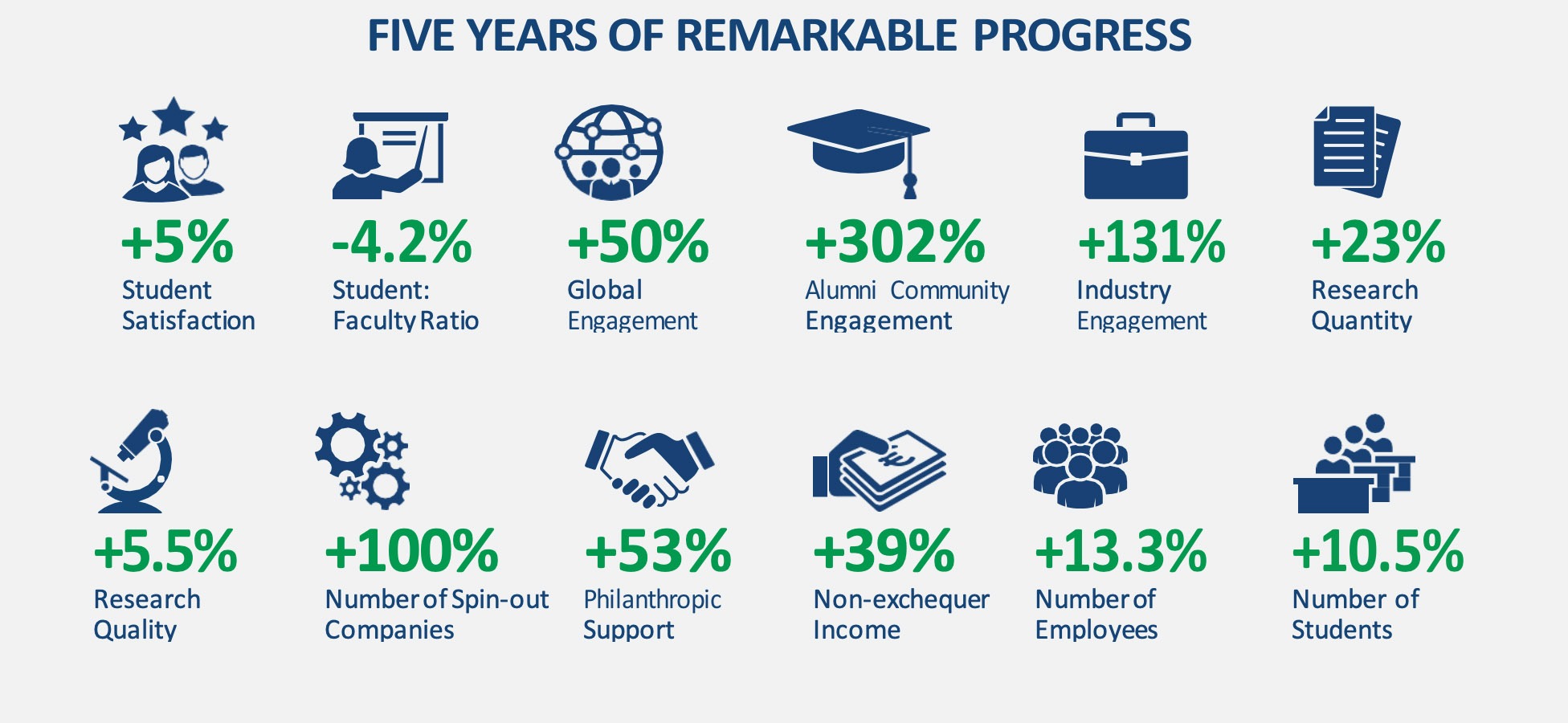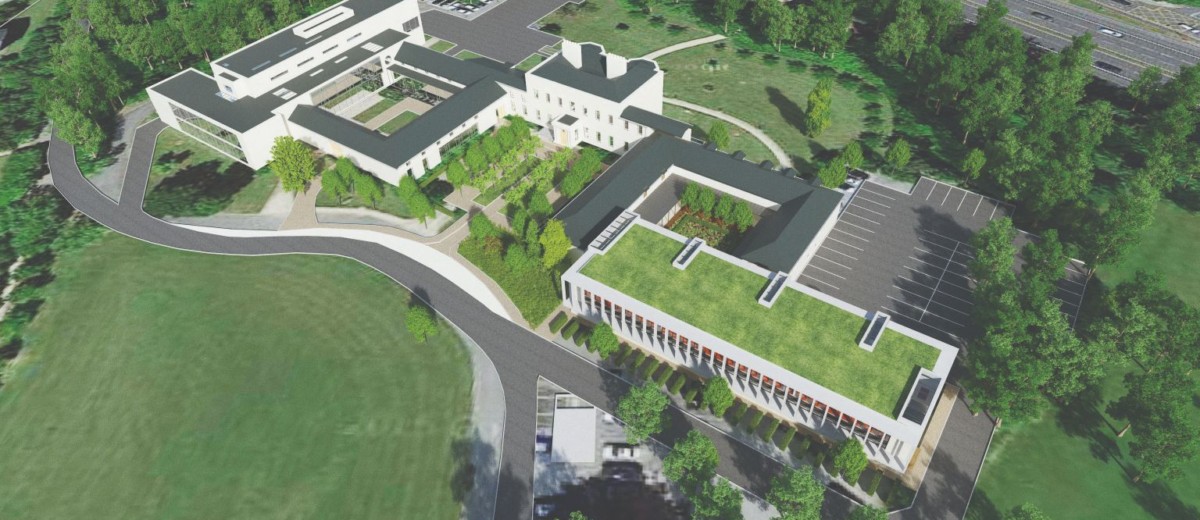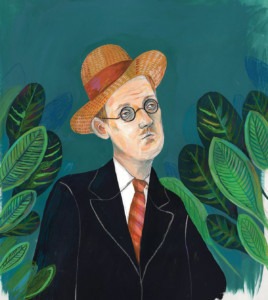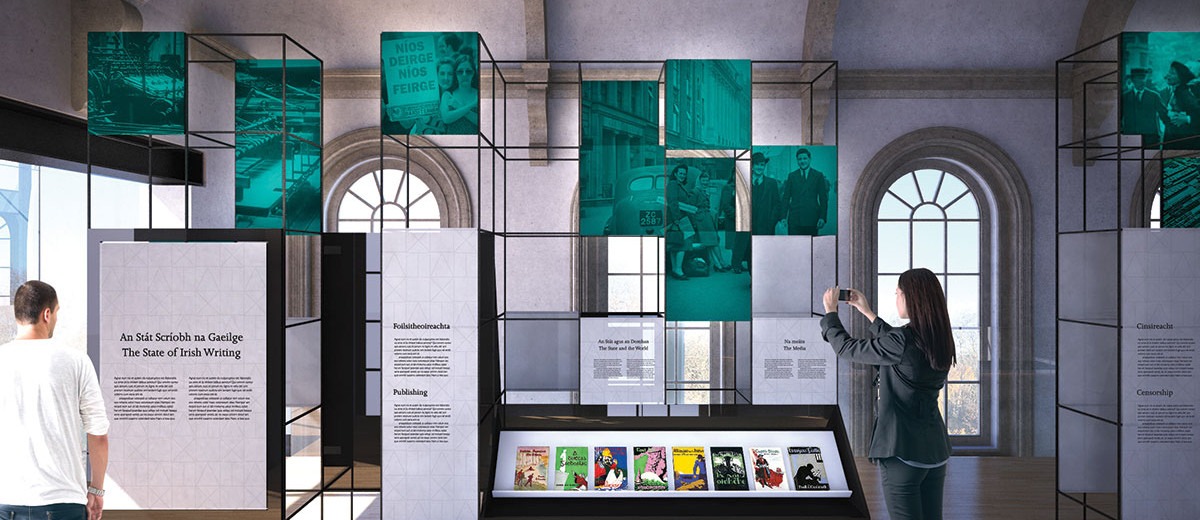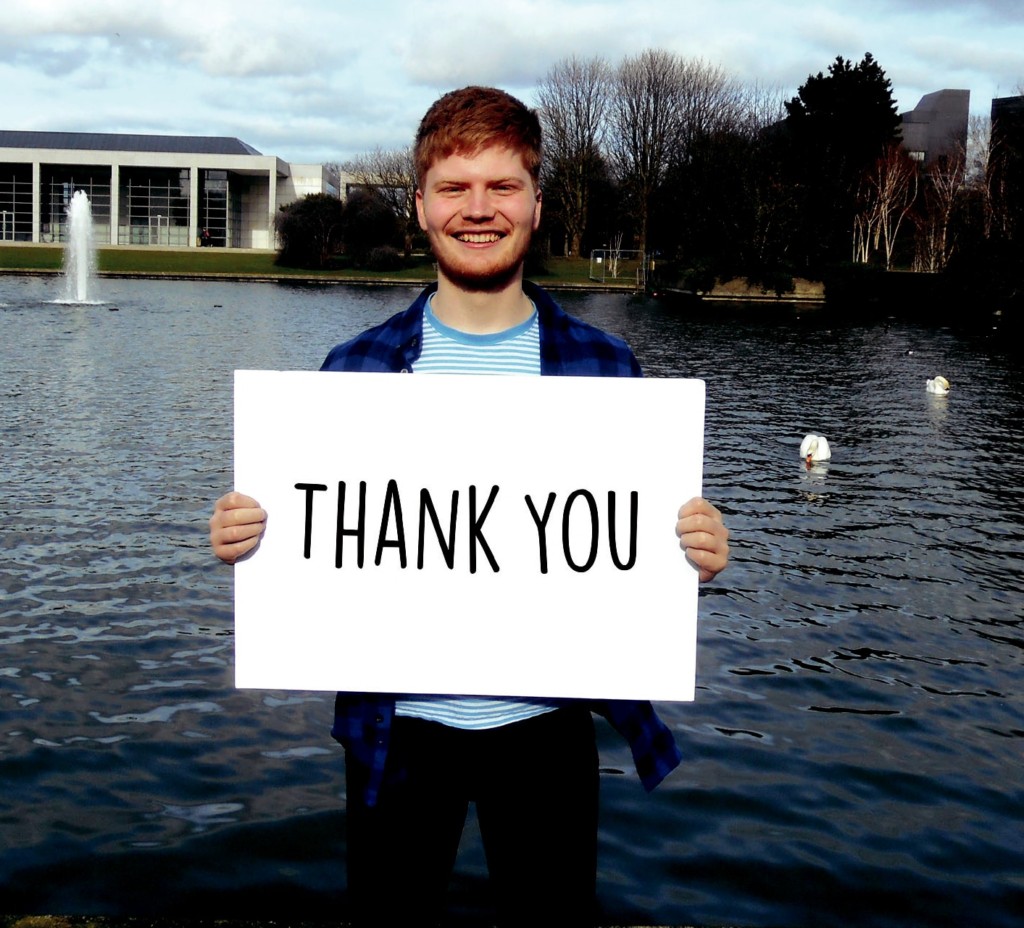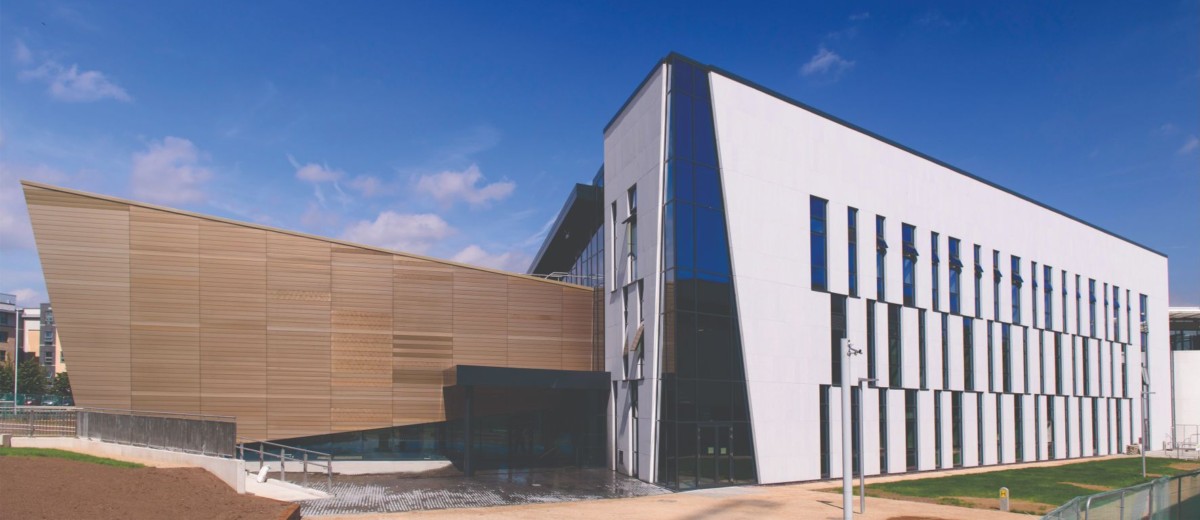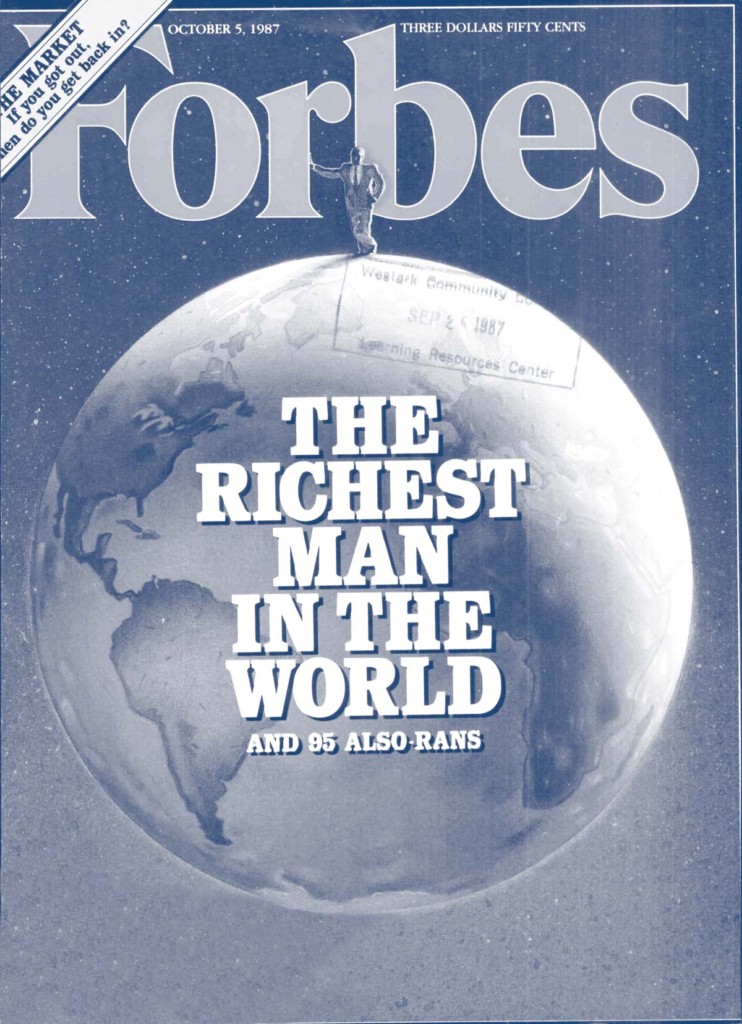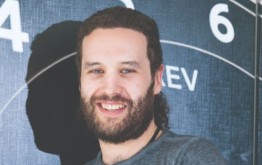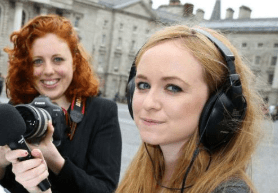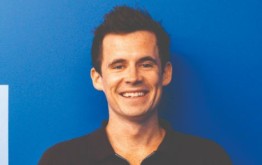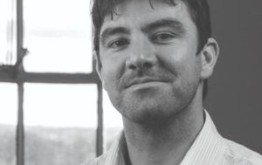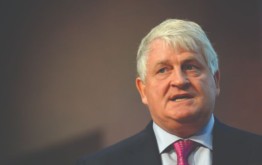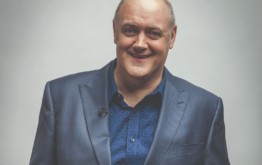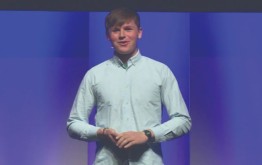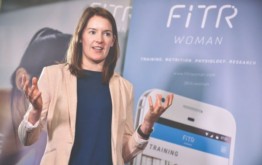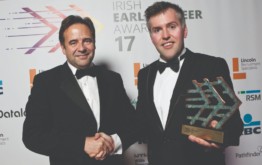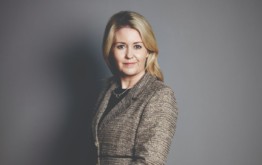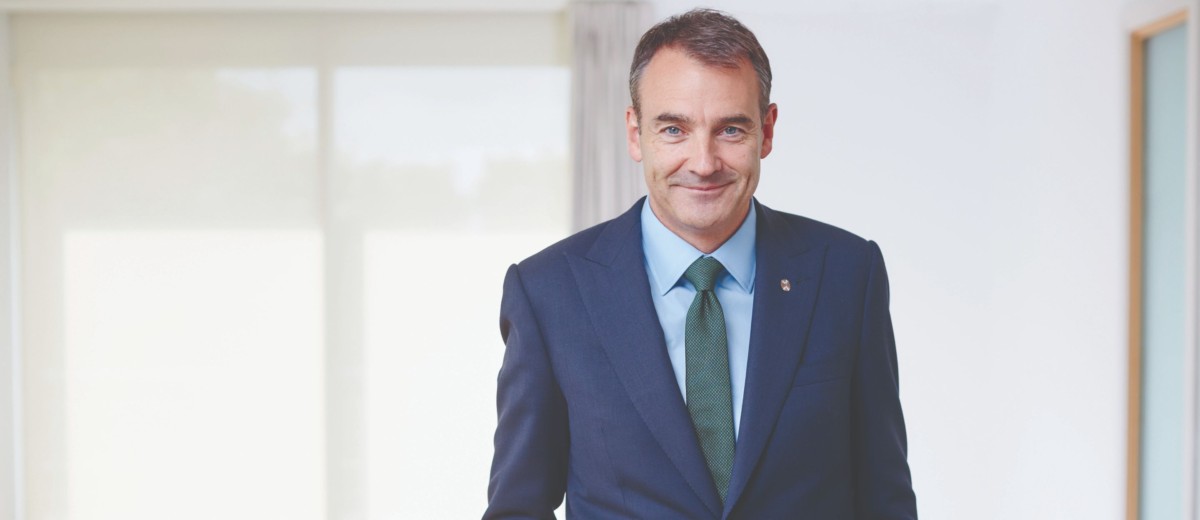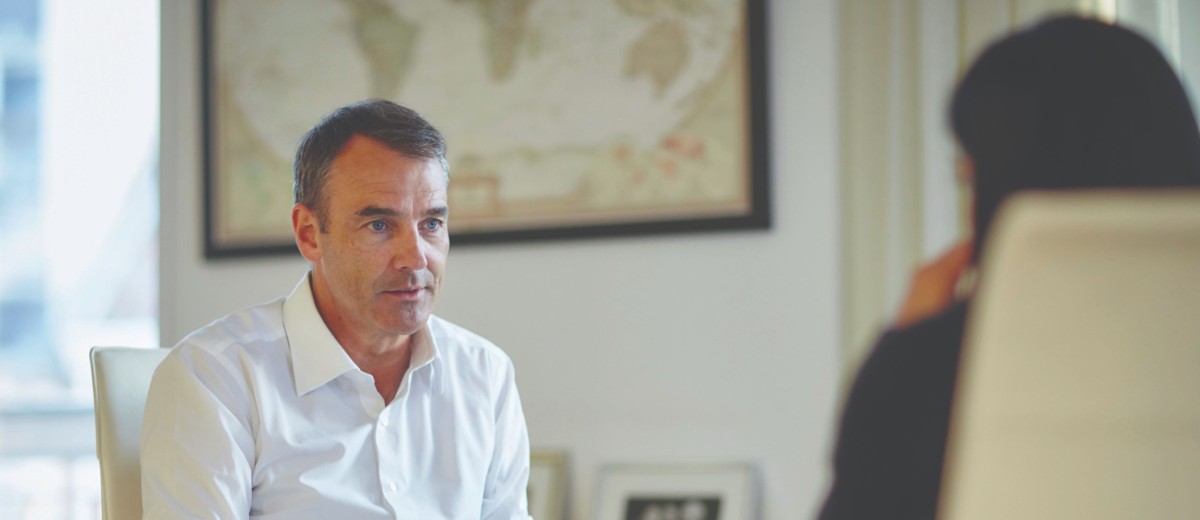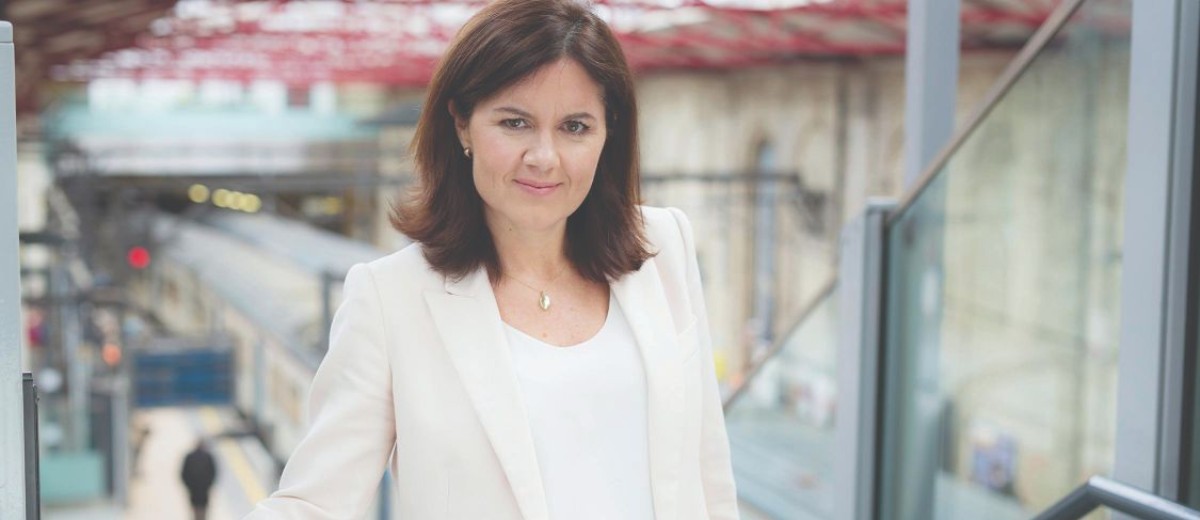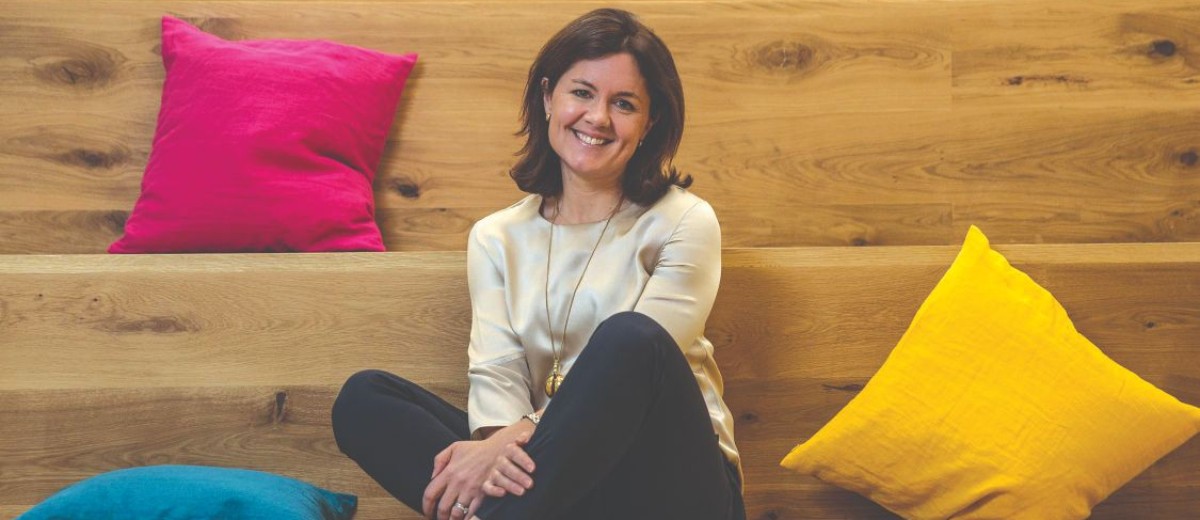TO HONOUR OUTSTANDING ACHIEVEMENT AND CELEBRATE SUCCESS
From Sport to Science, Business to Arts and Humanities, Law to Engineering and Architecture, we honour nine alumni in 2019 whose remarkable accomplishments are worthy of recognition
THE UCD ALUMNI AWARDS were created to honour outstanding achievement in a variety of fields. This year’s nine recipients will be celebrated at a special black-tie ceremony at UCD’s O’Reilly Hall on Friday, November 22. Each has excelled in her or his respective area of expertise and their remarkable accomplishments deserve wide recognition. Now in its sixth year, the Alumni Awards are voted on by UCD’s vast body of alumni, numbering over 279,000, living in 169 countries around the world, as well as students and staff. The success of the Alumni Awards shows that the UCD network is thriving, influential and truly international – and it’s a reminder to the University’s current student population that the benefits of studying at UCD can last a lifetime. We caught up with the nine awardees to ask them for their UCD memories, the high points of their career to date and what advice they have for future graduates.
International Diplomacy – Dr Sinéad Walsh
MSc 2005
Dubliner Dr Sinéad Walsh is the EU Ambassador to South Sudan. Before that, she was Irish Ambassador to Sierra Leone and Liberia. She has worked extensively for the Department of Foreign Affairs and in the charity sector. She is co-author of the book, Getting to Zero, which detailed her experience of the Ebola crisis. Have you fond memories of UCD? “I had been working for Concern on the Pakistan/Afghanistan border before doing my masters at UCD and I remember how wonderful it was to study there and the great professors who helped expand my mind.” What life skills did you pick up at UCD? “Meeting people. You can never underestimate how good it is to get to know as many people as possible and I met so many international students there. Today, I’m meeting with the governor of the Central Bank here in South Sudan and he’s someone I first met in UCD in 2003.” Career highlights? “Working on the Ebola crisis. I think I did some good work, but I also made mistakes. And it was tough to write about it [in her book, Getting to Zero] especially when I had to acknowledge those mistakes.” Where do you see yourself in five years? “Right now, I’m asking questions like ‘How can I have an impact on alleviating poverty?’ and ‘What about issues like climate change?’” What advice do you have for graduates? “It might not be fashionable to say this, but ‘work hard’.”
Inspirational Hockey Star – Katie Mullan
BSc 2017, ME 2018
Katie Mullan, former Ad Astra Sports Scholar and captain of the Irish hockey team, led her country to sporting triumph last year, a silver medal in the World Cup. It was an achievement that led to increased governmental funding. Katie, who is from Derry, and helped UCD win several trophies, aims to get Ireland to next year’s Olympic Games in Tokyo. What did you enjoy most about your time at UCD? “I enjoyed making many new friendships during my time in UCD, starting with those I made through living on campus with other Ad Astra athletes, to the girls playing UCD hockey and of course the engineers – all lifelong friendships that are invaluable to me.” How important was UCD in developing your sporting talent? “UCD was incredibly important. I progressed most as a player and person during my time at UCD.” Did you learn any ‘life lessons’ at UCD that have stood to you since leaving? “Probably the biggest life lesson was that all the sacrifices made are worthwhile. As an elite athlete my university experience differed a lot from the typical student. After six years of managing my studies with the demands of international hockey we won a World Cup silver medal. I wouldn’t change anything about my journey.” How do you manage to combine top-level sport with your more ‘regular’ career? “Time management. UCD helped me with that. I was constantly managing my hockey career with my undergraduate or postgraduate studies.”
Agri-Food Entrepreneur – Caroline Keeling
BSc 1990, MSc (Agr) 1992
As CEO of the Irish-owned Keelings, Caroline Keeling is steeped in the food business. Keelings employs over 2,000 people and supplies a large list of customers with fresh fruit and vegetable products. Caroline is on the board of several organisations, including Bord Bia and the Export Trade Council. What are your primary memories of UCD? “Two words: fun and friends. It was a great time – you meet so many new people from all walks of life, including boys, which was new for someone coming from a convent school!” Is there a key ‘take-away’ from your time there? “Much of the learning, particularly science, was presented as, ‘This is the current theory – we don’t know everything.’ That was really revelatory for me and it set me up for lifelong learning. There’s always more to learn.” What are you most proud of career-wise? “It gives me such pleasure to see people come in here to work and how they evolve over, say ten years. It’s so heartening to see people go above and beyond expectations.” Would you do anything differently? “There are things that I wish I tackled earlier, even something like really understanding yourself – what your make-up is, what your drive is, how you interact with people.” Do you have advice for new graduates? “Whatever career you choose, look for people to help you. You’d be amazed that 80 to 90 per cent of the people you ask really will.”
Cultural Strategist – Dr Barbara Dawson
BA 1979
The first female director of Dublin’s Hugh Lane Gallery, Dr Barbara Dawson has been one of the most significant figures in the Irish art world in recent decades. She oversaw an expansion to the Gallery and helped to develop the world-renowned Francis Bacon studio there. She is Adjunct Professor at UCD’s School of Art History. What do you remember most about your time at UCD? “The great friends I made at UCD I’ve kept to this day. The camaraderie was wonderful. I have great recollections of the History of Art Department – it was so small and intimate. It was a privilege to be taught by these great scholars.”How has your time at UCD served your career and life? “Obviously, there was the academic work, but it was learning from your setbacks – and it’s terribly important to do that learning then. Looking back, I see UCD as a big learning ground – not just for art, but for life.” What career achievements make you proud? “I was very proud of Francis Bacon’s studio and for building a new wing at the Hugh Lane which really allows it to take its place as a leading institution in the visual arts in Ireland. I’m proud of the fact that I was the first female director of the Gallery. The challenge was to come and do something that wasn’t so familiar and that could be nerve-wracking at times.” Do you have advice for today’s graduates? “It’s very valuable to travel and to allow time to do that because once you get seriously into your career that opportunity may be curtailed. Be open and receptive and if you are, you have an advantage over others. Engage with the creative industries, the plays, the operas, the arts – they are different tools with which to navigate the world.”
Global Business Influence – Colin Ryan
BCL 1997, DBS 1998
Colin Ryan joined investment bank giant Goldman Sachs after leaving UCD. He is based in the San Francisco Bay Area and is Co-Head of Mergers and Acquisitions: Americas. He was a recipient of the Ireland Funds Distinguished Leadership Award for 2019 in recognition of his philanthropy and remarkable business achievements. Your strongest memories of UCD? “The camaraderie among my BCL class. I made great friends while obtaining a world-class education which provided the foundation for my professional life. I was also fortunate to have the opportunity to participate in the BCL International exchange programme at De Paul Law School in Chicago which gave me my first taste of life in America and a better understanding of the opportunities available outside of a traditional legal career.” What ‘life lessons’ served you well as a result of attending UCD? “The emphasis placed on independent research as part of the BCL programme fostered a greater appetite to be a self-starter, a skill which enabled me to build teams, develop client relationships and grow businesses over the course of my career.” What advice have you for new UCD graduates? “Be expansive and ambitious – you have earned the right to compete on the global stage.”
Transformational Innovator – Noelle Walsh
BE 1985
Noelle Walsh leads the Cloud Operations and Innovations operation at Microsoft, a role that includes supply planning and strategic acquisition as well as global construction and data centre operations. Previously, she spent 25 years with the Dow Chemical Company, where she worked across multiple businesses. Memories of UCD? “I have many fond memories – the camaraderie, positive environment set by the administration, even the hard work we all were required to put in. The many lifelong, enduring friendships are what I treasure most.” Is there a characteristic you attribute to UCD? “UCD requires students to work very hard, individually and in teams. I think demanding that level of effort creates a sense of determination and I credit that determination for getting me where I am today, to keep pushing forward each time I am faced with a new opportunity.” Where do you see yourself in five years’ time? “It’s a very exciting time to be at Microsoft, as the company transforms to a mainly cloud-driven business. I also look forward to giving back more meaningfully, to causes that are important to me. I’m a big champion of diversity and inclusivity and giving back to the communities in which we live and work. That might mean joining a public board.” What advice do you have for today’s graduates? “Take the leap. Think big. Stand up for what you believe in.”
Global Leadership – Shaun T Kelly
BComm 1980, DipPrAcc 1981
Belfast native Shaun T Kelly was the global COO of KPMG International. He ran the US tax practice and through his leadership, KPMG served a long list of blue chip American corporations. He is on the board of the Ireland Funds of America and the Irish Arts Centre in New York and he is the chair of the Northern Ireland US Advisory Council for the East Coast. What are your abiding memories of UCD? “Coming from Belfast to Dublin felt like a huge change. It was liberating. I’d played minor football for Antrim so I played a bit at UCD but wasn’t good enough to get on the team for the Sigerson Cup. I remember as a freshman being marked by [former Dublin player and manager] Pat O’Neill.” Did you pick up any life lessons at UCD? “It was a great confidence builder and it taught me that meeting people from different backgrounds could be invaluable. Moving to Dublin opened my eyes to travel and that eventually brought me to the US.” What are you most proud of in your corporate career? “Running the US tax practice for KPMG was great, but so too was coming back to Belfast in the 1990s and effectively running a start-up business there. It was an exciting time for the city.” What would you say to future graduates? “Don’t be afraid to take opportunities as they come up. Take a chance, take risks, be versatile. There’s a lot of disruption in many industries now so, to paraphrase Darwin, it’s not so much the survival of the fittest but the survival of the most adaptable.”
Sustainability Strategist – Dr John Bell
BA 1986, MA 1988
Dubliner Dr John Bell is the ‘Healthy Planet’ director at DG Research and Innovation at the European Commission in Brussels. He has held a variety of top roles at the Commission for the past 26 years and was Chef de Cabinet for former Commissioners, Máire Geoghegan Quinn and Maglena Kuneva. What are your memories of UCD? “It really was a catalyst for opening up so many opportunitiesin my life. UCD was responsible for my academic career and was where I met my wife. As students, we had access to the top people in their fields, like Gus Martin and Terry Dolan. They weren’t just scholars, but very innovative people too.” What life lessons did UCD help with? “It gave me great confidence to be the best I could be. There was such openness there. People would tell me that I could do whatever I wanted in life if I really applied myself and that message stayed with me.” Of what aspects of your career are you most proud? “The grounding I got at UCD really helped me be a policy strategist because language is so important. Most strategic thinkers in the Commission come from the humanities. They’re used to paying attention to language. They’re more open and confident in their outlook.” What do you say to new graduates? “I believe if you work and network and do your best, no matter what your corner is, that you can take it forward. No matter whether you’re in the arts or the sciences or any other discipline, if you apply yourself you prepare yourself for whatever direction you take in life.”
Medical Education Leadership – Prof Mary Horgan
MB BCh BAO 1986, MD 1995
A world-renowned expert in infectious diseases, Professor Mary Horgan is the President of the Royal College of Physicians of Ireland (RCPI) – the first female in this role since its establishment in 1654. She is a consultant in infectious diseases at Cork University Hospital and was Dean of the University College Cork School of Medicine. What are your abiding memories of UCD? “So many! I remember Newman House having a great disco scene in the 1980s during term time and then becoming a daunting exam hall in May/June. I remember being in Earlsfort Terrace and Professor Coakley being a fantastic anatomy teacher.” What life skills did you pick up at UCD? “As a country girl from Kerry, I learned to fend for myself, but in a wider context, UCD taught me the importance of networking and communicating with people. At this stage of my career, it’s remarkable the number of UCD alumni that I meet.” Of what career achievement are you most proud? “It was a huge privilege to be elected president of the RCPI. I think it was a reflection of their trust for me to take on the role and to make changes. I like to remind people that I am a UCD alumna and if I can achieve this without any major connections, there’s no reason why you can’t push boundaries also.”
